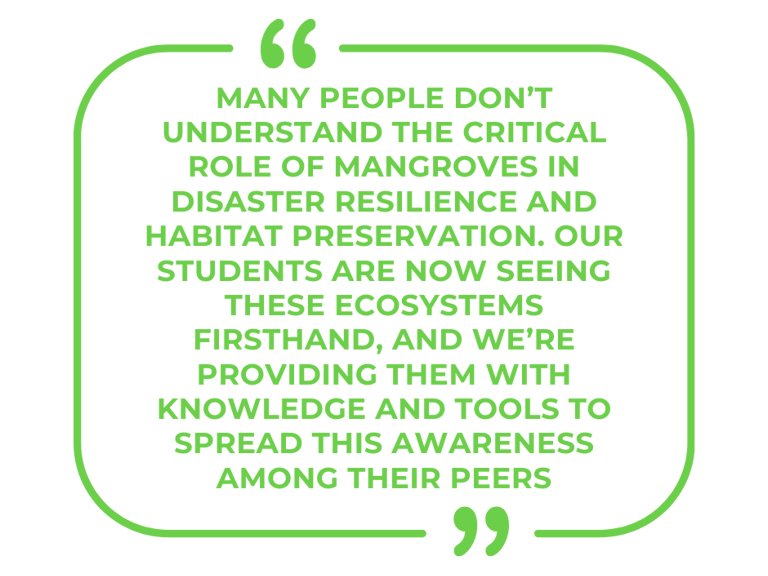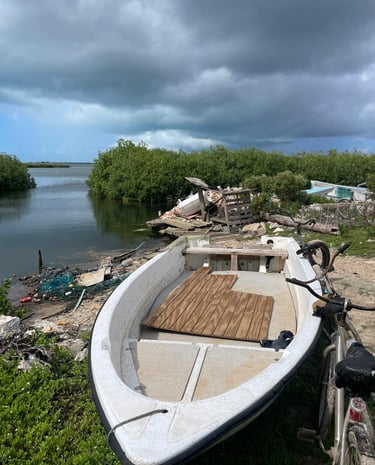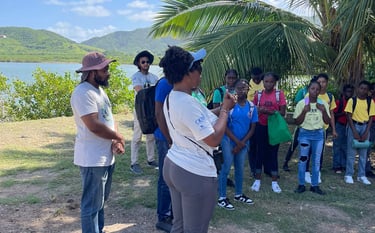

The Wetlands and Coastline Assessment and Management Project (WAMP) was established in response to the urgent need for greater awareness, education, and community action surrounding the conservation of coastal ecosystems in Antigua and Barbuda. As a small island developing state (SIDS), Antigua and Barbuda faces heightened vulnerability to climate change, particularly in relation to its coastal and marine ecosystems. Mangroves, wetlands, and coastlines are critical in protecting the island from storm surges, erosion, and biodiversity loss while supporting local livelihoods and serving as habitats for diverse flora and fauna. However, these ecosystems are increasingly threatened due to unsustainable development, weak regulatory frameworks, and limited public awareness, especially among youth.
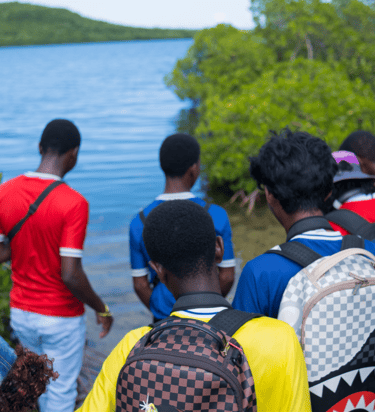

WAMP was implemented under the auspices of the CARICOM Secretariat’s Climate Change and Health Programme and received support from many local organisations. It was designed to empower youth aged 10 to 18, particularly those living within six kilometres of the coast, by equipping them with knowledge, skills, and resources to become active stewards of their environment. The project’s overarching goal was to enhance environmental literacy, promote climate resilience, and catalyse student-led action to safeguard coastal ecosystems.
The project’s methodology was rooted in experiential learning, capacity-building, and youth empowerment. Over the course of its implementation, WAMP successfully engaged more than 120 students from eight schools across Antigua and Barbuda. The core of the educational strategy involved four field trips to more than ten different mangrove sites, allowing participants to immerse themselves in the ecological importance and real-world challenges facing these habitats. These field visits were not passive sightseeing exercises but carefully curated experiences in which students observed, questioned, and reflected on the function, diversity, and threats to mangrove ecosystems. This hands-on approach enabled students to directly connect academic learning to environmental realities within their communities.
Complementing the field trips were two structured capacity-building workshops, which introduced participants to the fundamentals of project planning, environmental management, and leadership. These sessions provided a platform for students to develop proposals for their own conservation initiatives while strengthening their analytical thinking and teamwork skills. During the workshops, students were introduced to the project’s custom-developed learning tool, the “Exploring the World of Mangroves” Booklet. This booklet served as an accessible educational resource, detailing the types of mangroves found in Antigua and Barbuda, their ecological roles, and the threats they face. It also included practical guidelines for mangrove conservation and restoration and incorporated two QR codes that linked to interactive learning activities and additional resources from the Department of Environment.
The knowledge and momentum generated through these activities culminated in tangible outcomes, including developing and implementing three student-led sub-projects focused on sustainable environmental practices. These projects represented the practical application of what students had learned and demonstrated the viability of youth-led interventions in environmental management.
Overall, the Wetlands and Coastline Assessment and Management Project (WAMP) is a pioneering model for youth engagement in climate resilience and coastal conservation within small island contexts. By integrating scientific knowledge, community-based learning, and youth leadership, WAMP fostered a generation of informed and empowered young people who are better equipped to advocate for and act for their environment. Its outcomes indicate the need for continued investment in education-driven, community-rooted climate initiatives across the Caribbean.
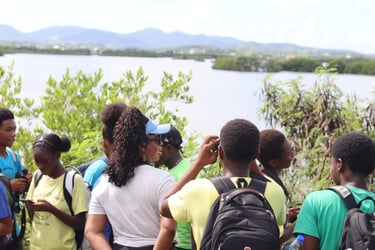
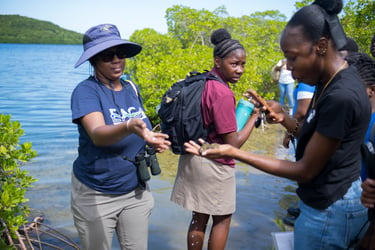
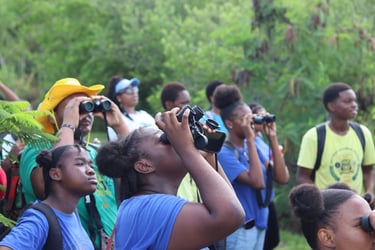
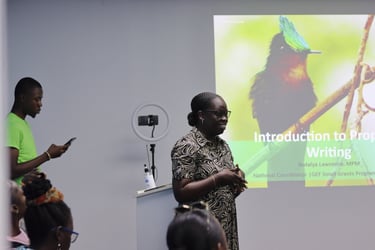
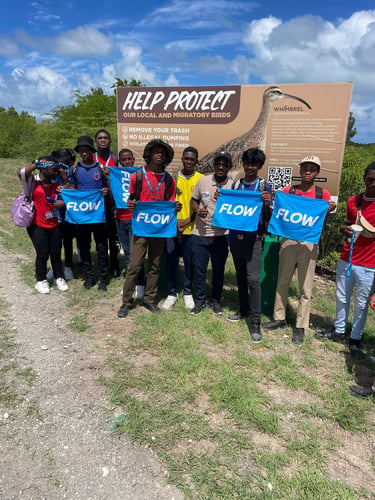
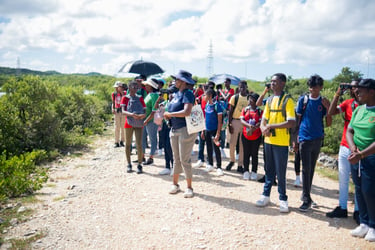
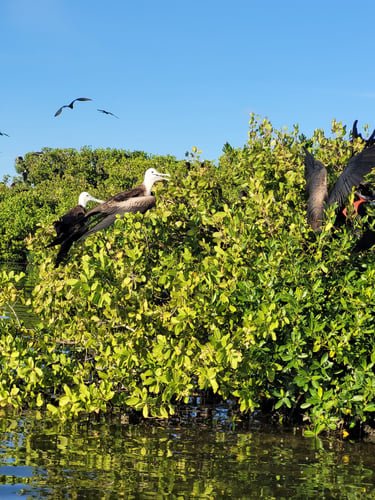
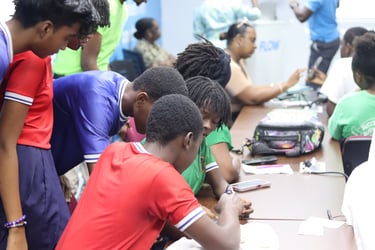
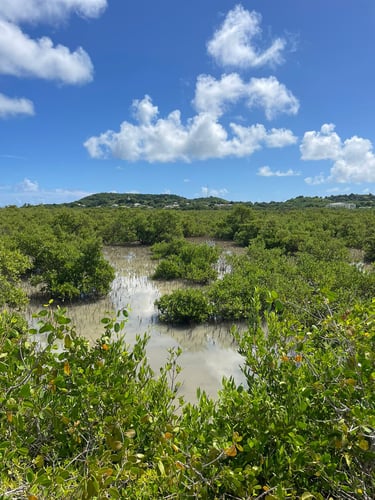
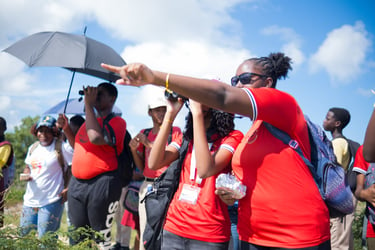
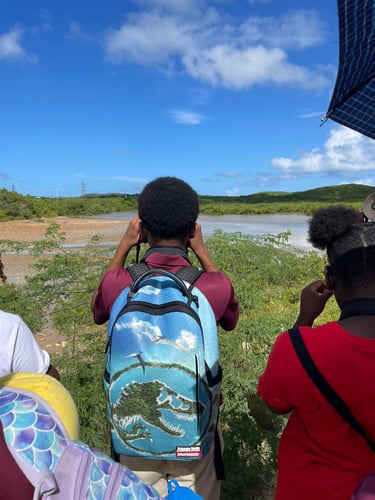
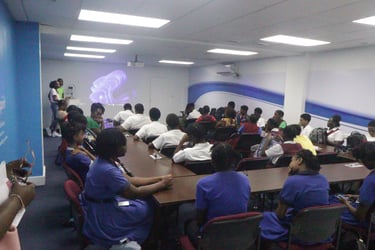
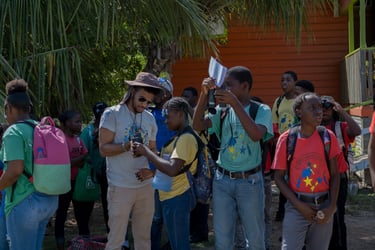
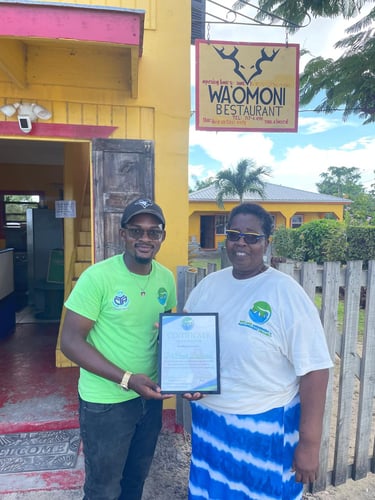
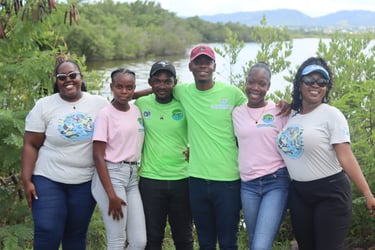
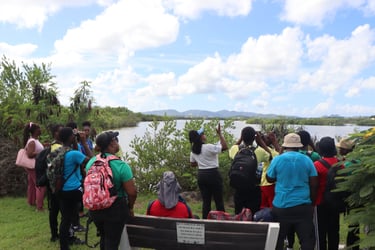
















All photos featured are courtesy of Sherrel Charles (EAG), Trill Photography, and the WAMP Team
